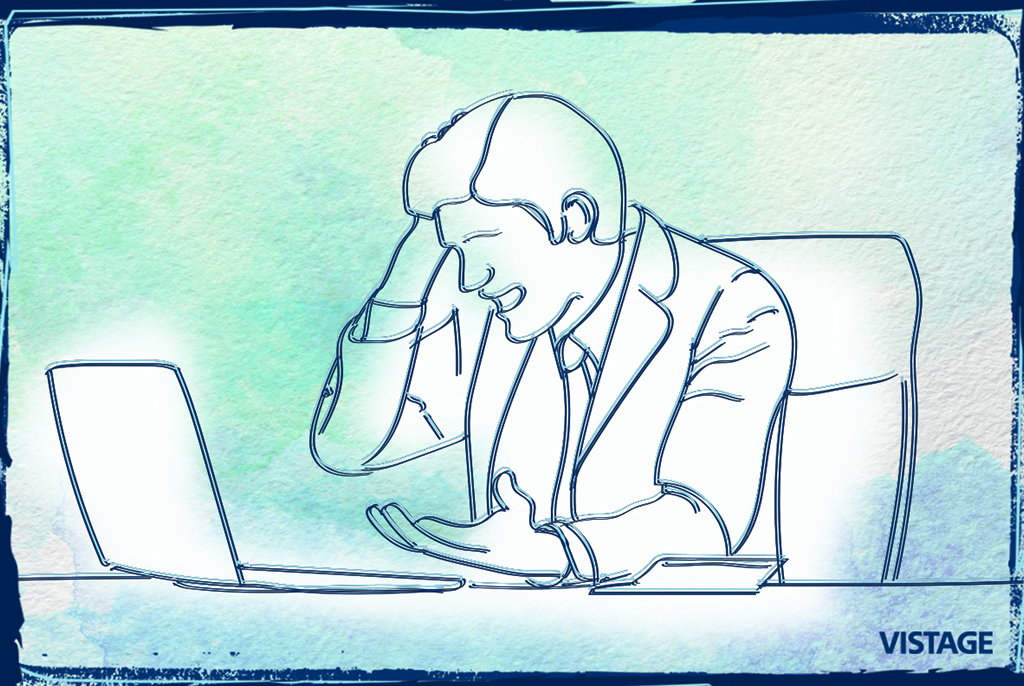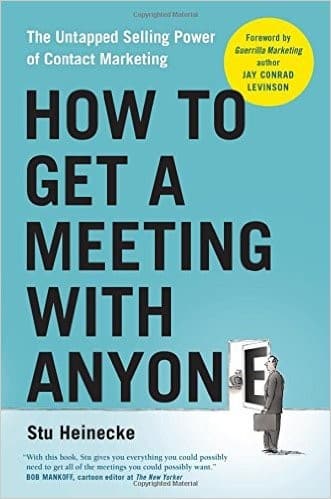A taller pair of pants

How to make Contact Marketing work for you.
Most sales experts will tell you the days of cold calling are over. Whether you agree or not, the ability to connect with virtually anyone is a critical part of success in business and sales.
I’ve been using my cartoons to do that throughout my career, with surprising success. They have allowed me to reach presidents, prime ministers, celebrities and countless CEOs, C-level executives and top decision makers. For a long time, I thought I had a one-of-a-kind, secret weapon in my business, because I could reach just about anyone I set my sights on.
But somewhere along the way, I made a wonderful discovery. I wasn’t alone in my use of micro-focused campaigns to reach people of great importance.
There was Rick Bennett, who connected with Oracle CEO Larry Ellison through a contact letter placed in The Wall Street Journal as a full-page ad. And top sales blogger and author Dan Waldschmidt, who uses beautifully custom-made swords to connect with CEOs of distressed companies to sell million-dollar consulting contracts. NoWait App’s brilliant personalized videos on iPads delivered to targeted CEOs that launched the company into national prominence almost overnight in the restaurant industry. There was David Meerman Scott’s brilliantly simple use of Google Alerts, Anthony Lannarino’s skillful use of “super qualifying” and Dave Stein’s inventive use of information, insights, and even temporary stockholder status to break through. And Paul McCord’s cleverly-conceived tube mailing to generate a 620,000% return on his campaign to reach local builders to set up referral partnerships.
The more I searched, the more stories popped up about these tiny, brilliant and audacious marketing campaigns focused on creating connections with a handful of ultra-critical contacts. Our results followed a pattern I had always been told was impossible, with response rates often as high as 100% and Paul McCord’s campaign setting the high mark for ROI so far, at just over 620,000%. The costs of the campaigns similarly seem as though they come from a parallel universe. Some campaigns cost essentially nothing, when social media, email, phone and snail mail tactics are used, while Rick Bennett’s Wall Street Journal contact letter cost $10,000 just for the ad space alone.
So we have a form of marketing that produces response rates as high as 100%, ROI figures in the tens, even hundreds of thousands of percent, all at a cost per contact ranging from $0 to $10,000. Surprisingly, no one seemed to have a name for it, so I gave it a name in my new book, How to Get a Meeting with Anyone. I called it, “Contact Marketing.”
When I first started my career, I experienced the power of Contact Marketing in dramatic fashion. I wanted to create direct mail campaigns for the biggest publishers in the country, using my personalized cartoons as an irresistible involvement device to pull recipients into the piece and get them to respond. My first two assignments came from Rolling Stone and Bon Appétit magazines, and fortunately, both campaigns beat their controls. It was a home run and I saw it as my opening to bring my style of mailings to the rest of the publishers.
But how would I break through to the C-suite?
After all, these were elite media companies and I would have to reach vice presidents and directors of circulation, people in pressure-cooker careers in the middle of Manhattan. I knew they would not be easy to reach, but I also knew I had something of dramatic value to show them. So I produced my very first Contact Campaign, consisting of a suitable for framing print of a personalized cartoon with a letter, explaining that this is what I’d just used to beat controls for Rolling Stone and Bon Appétit, and suggesting that we put it to the test for their titles.
It worked spectacularly. Not only did I break through to all of them, but they all became clients. It launched my business and was worth millions of dollars to me. And it all stemmed from a campaign that cost less than a hundred dollars.
Contact Marketing is not new (click to tweet this). It has been used for a long time on an ad hoc basis, largely hidden from view. It has existed as a collection of near urban-legend stories of reaching the unreachable, of breaking through to just the right people and changing the trajectory of a lucky few who dared to reach out to people they should never have been able to reach. Sort of like putting on a longer pair of pants and becoming instantly taller.
What about you? Do you have any stories of your own Contact Campaigns? Please share below.
For a sneak preview of How to Get a Meeting with Anyone, please visit StuHeinecke.com.
About the author
Stu Heinecke is president of “Contact,” a first-of-its-kind Contact Marketing agency located on Whidbey Island, Washington. He is also a DMA Hall of Fame-nominated marketer, one of The Wall Street Journal cartoonists and author of How to Get a Meeting with Anyone, due to release on February 16.
Category : Customer Engagement


